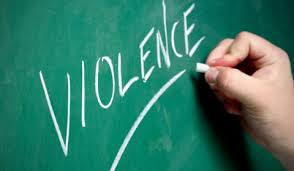
Being able to lead a life free from all forms of violence determines whether a child, and indeed any person, can fully enjoy and exercise their human rights.
Children are especially vulnerable to violence on account of their age, and very young children in particular have a lack of knowledge of their own rights and an inability to speak up for and defend themselves. Most often violence against children is perpetrated at the hands of adults, including those in positions of trust. It is perpetrated in all settings of children’s lives, including schools, the penal system, alternative care settings, places of work and the home.
Our common understanding of violence most readily brings to mind forms of physical abuse. But violence often extends beyond the physical, and particularly for children, involves forms of neglect and exploitation, as well as psychological abuse. Indeed the invisible nature of some forms of abuse, either because they leave no physical signs or are perpetrated behind closed doors, does not negate the harm they cause.
Yet despite the instinctive awareness that being subjected to violence affects the development, wellbeing and survival of a victim, many States worryingly continue to sanction various forms of violence against their most vulnerable citizens. In many countries, children can be punished physically in the name of discipline - an action that could conversely amount to criminal assault if perpetrated against an adult. Justice systems in some countries also allow for children to be sentenced to flogging, amputation, and even death - probably the most glaring form of physical violence. Read more about this through our campaign to end inhuman sentencing.
Discrimination also means that certain groups of children, such as girls or children of minorities, are at greater risk of suffering particular forms of violence. Prevention and protection are key for safeguarding children and ensuring their ability to fully enjoy their rights. But a lack of action in this respect on the part of a State constitutes neglect - in itself a form of violence - which leaves children exposed to further abuse or the risk of it.
In recognition of the painful and long lasting effects violence can have on children, in 2006 the United Nations Secretary-General commissioned a study to document the nature, extent and causes of violence against children worldwide, and established the mandate of the Special Representative of the Secretary-General (SRSG) on Violence against Children.
Relevant articles of the Convention on the Rights of the Child (CRC) dealing with violence:
· Protection from abuse and neglect (article 19): The State shall protect the child from all forms of maltreatment by parents or others responsible for the care of the child and establish appropriate social programmes for the prevention of abuse and the treatment of victims.
· Right to life, survival and development (article 6): Every child has the inherent right to life, and the State has an obligation to ensure the child’s survival and development.
· Child labour (article 32): The child has the right to be protected from work that threatens his or her health, education or development. The State shall set minimum ages for employment and regulate working conditions.
· Drug abuse (article 33): Children have the right to protection from the use of narcotic and psychotropic drugs, and from being involved in their production or distribution.
· Sexual exploitation (article 34): The State shall protect children from sexual exploitation and abuse, including prostitution and involvement in pornography.
· Sale, trafficking and abduction (article 35): It is the State's obligation to make every effort to prevent the sale, trafficking and abduction of children.
· Other forms of exploitation (article 36): The child has the right to protection from all forms of exploitation prejudicial to any aspects of the child's welfare not covered in articles 32, 33, 34 and 35.
· Torture and deprivation of liberty (article 37): No child shall be subjected to torture, cruel treatment or punishment, unlawful arrest or deprivation of liberty. Both capital punishment and life imprisonment without the possibility of release are prohibited for offences committed by persons below 18 years. Any child deprived of liberty shall be separated from adults unless it is considered in the child's best interests not to do so. A child who is detained shall have legal and other assistance as well as contact with the family.
Source: Crin
 FR
FR EN
EN AR
AR








